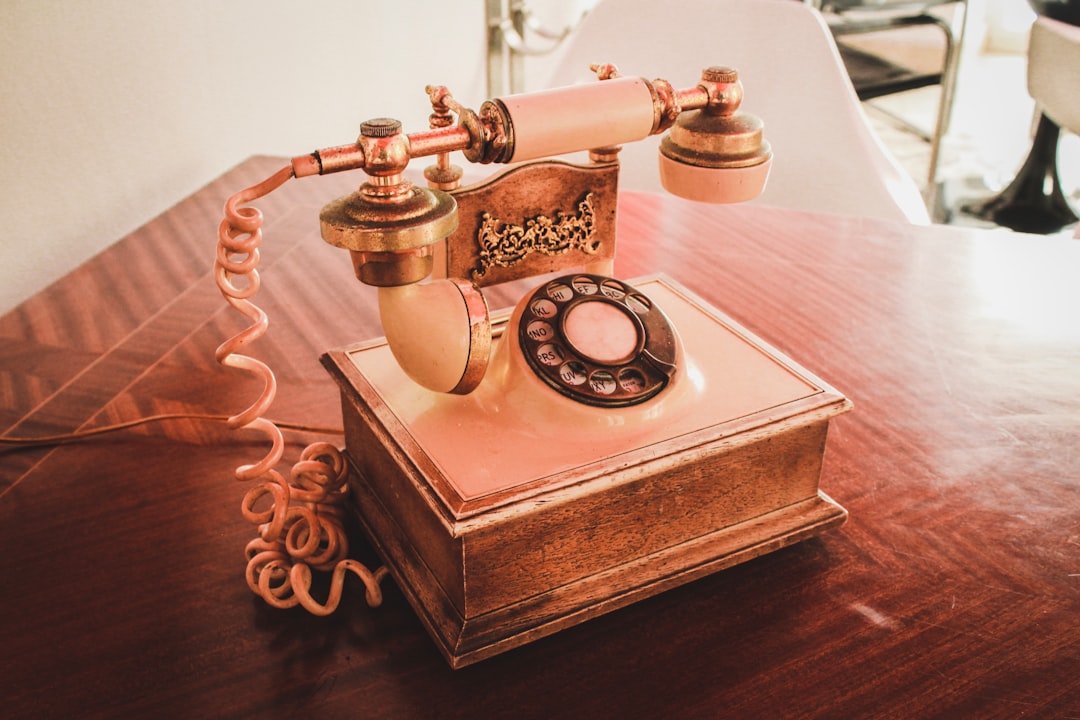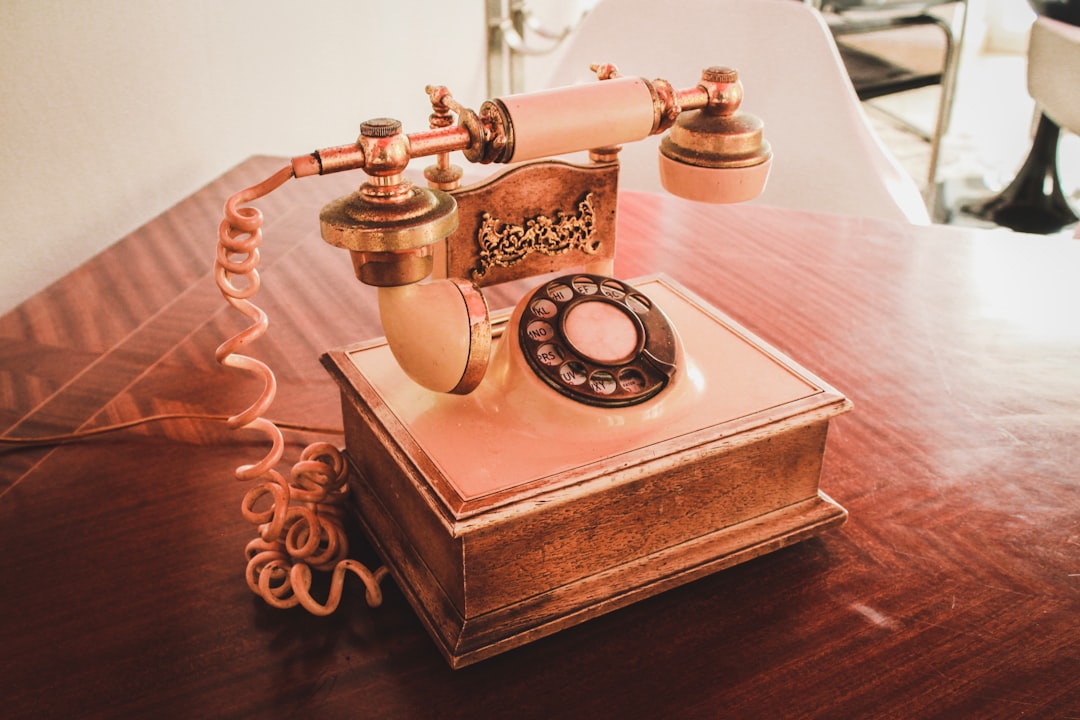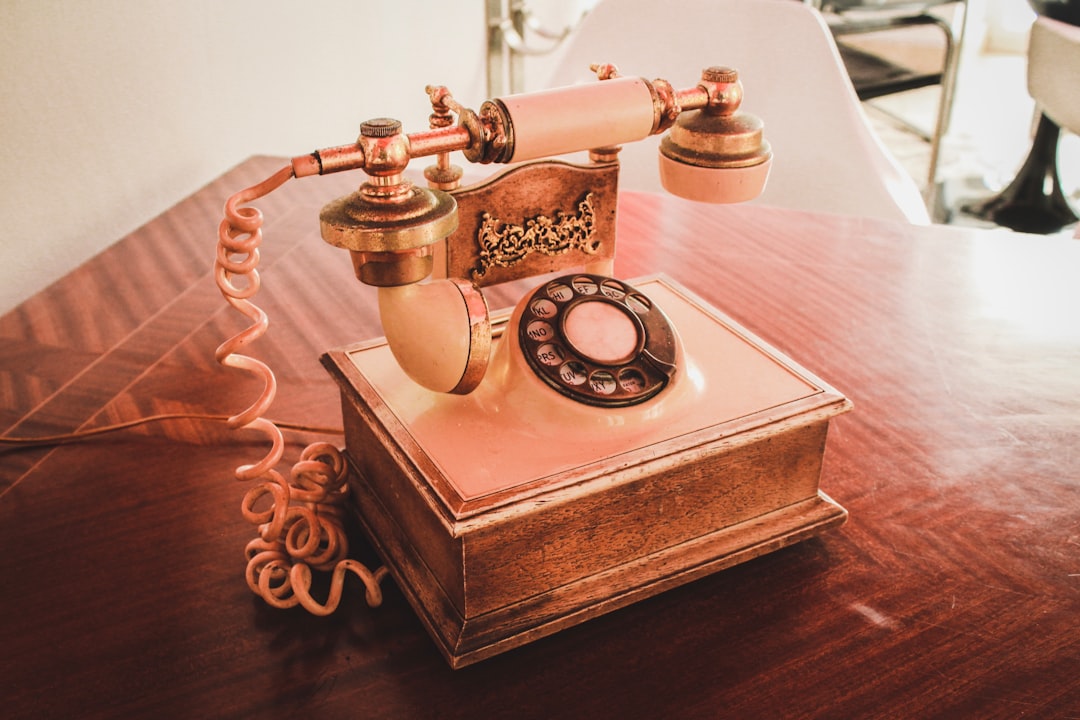The Pottawattamie County Fair in Council Bluffs has introduced a dedicated Robocall Reporting Hotline to combat unwanted automated calls. Visitors can easily report robocalls, triggering an immediate response from fair staff and legal experts at a specialized robocall law firm in Iowa. This initiative leverages the Telephone Consumer Protection Act (TCPA) to regulate robocalls and offers proactive solutions for robocall lawyer Iowa, robocall attorney Iowa, and robocall law firms Iowa services, enhancing consumer protection during large events and influencing industry-wide practices.
Council Bluffs’ Pottawattamie County Fair is taking a tech-savvy approach to combat the growing issue of robocalls with the implementation of a dedicated Robocall Reporting Hotline. This innovative solution aims to address the frustration caused by unwanted automated calls, particularly during events. With a focus on consumer protection, the fair’s initiative could set a precedent for other organizations in Iowa seeking effective robocall mitigation strategies. Discover how this hotline works and explore the legal implications with top-rated Robocall Lawyers in Iowa, offering insights into the future of event management and consumer rights.
Council Bluffs' Pottawattamie County Fair Takes a Tech-Savvy Approach to Robocall Complaints

Council Bluffs’ Pottawattamie County Fair has adopted a modern solution to an age-old problem—robocalls. With the increasing prevalence of automated phone calls, the fair organizers have established a dedicated Robocall Reporting Hotline, empowering attendees to combat this nuisance with ease. This tech-savvy approach ensures that any unwanted or fraudulent robocalls during the event can be promptly reported and addressed.
By implementing this system, the fair aims to provide a seamless experience for its visitors while also offering peace of mind for those concerned about privacy and security. With the help of this hotline, attendees can quickly connect with the appropriate authorities or legal professionals, such as robocall lawyers in Iowa, to discuss any potential legal recourse available under state laws regulating telemarketing practices. This proactive measure demonstrates the fair’s commitment to protecting its guests from annoying and potentially harmful automated calls.
The Need for a Robust Reporting System: A Solution for Iowa's Robocall Problem

In the age of digital communication, Robocalls have become a pervasive and often frustrating issue for Iowans. With the rise in automated phone calls, the need for an efficient reporting system has never been more critical. Traditional methods of addressing this problem have proven inadequate, leaving many residents without a clear avenue to voice their concerns and seek resolution. This is where Council Bluffs’ Pottawattamie County Fair’s innovative approach comes into play, offering a robust solution to combat the deluge of unwanted Robocalls.
The implementation of a dedicated Robocall Reporting Hotline empowers Iowans to take control and protect their privacy. With the support of a legal team specializing in robocall attorney services, the fair ensures that all reported incidents are handled with expertise. This collaborative effort between the community and legal professionals is a game-changer in the fight against harassing phone calls. By providing an accessible reporting mechanism, residents can now easily document and report suspicious activity, enabling authorities to take targeted action against Robocall lawyers and their practices, thereby offering much-needed relief to Iowa’s citizens.
How the Hotline Works: A Step-by-Step Guide for Fairgoers

The Pottawattamie County Fair in Council Bluffs has introduced a cutting-edge solution to combat an old problem—robocalls. A dedicated Robocall Reporting Hotline has been set up, allowing fairgoers to take action against unwanted automated calls. Here’s how it works: When a visitor experiences a robocall during their fair visit, they can easily report the incident by calling the hotline number. This simple step triggers an immediate response from the fair’s staff and legal team.
After reporting, the hotline operator will gather essential details about the call, including the caller’s information and the time of day. This data is then swiftly conveyed to a specialized robocall law firm in Iowa, who are tasked with investigating and taking appropriate measures. With their expertise in robocall attorney services, they can block future calls from the same number and provide legal counsel to affected individuals, ensuring that Council Bluffs’ fairgoers enjoy a peaceful experience free from nuisance calls.
Legal Implications and the Role of Robocall Lawyers in Iowa

In Iowa, the legal implications of robocalls are governed by the Telephone Consumer Protection Act (TCPA). This federal law restricts businesses from making automated or prerecorded calls to telephone numbers without the caller’s prior express consent. Violations can lead to significant financial penalties and lawsuits. Robocall lawyers in Iowa specialize in navigating these regulations, helping individuals and businesses defend against TCPA claims or assert their rights when they’ve been victimized by unwanted robocalls.
These robocall attorneys and law firms in Iowa offer expertise in understanding the nuances of robocall laws and advocating for their clients’ interests. They can assist with call tracking, identifying the source of robocalls, and even negotiating settlements or representing clients in court if necessary. With the increasing prevalence of automated calls, having legal counsel specifically equipped to handle robocall issues is more important than ever for businesses aiming to stay compliant and protect their reputations.
Expecting Change: The Impact on Future Events and Consumer Protection

With the implementation of a Robocall Reporting Hotline at the Pottawattamie County Fair, Council Bluffs is setting a new standard for consumer protection during large-scale events. This initiative signals a significant shift in how organizers tackle unwanted automated phone calls, which have become a growing nuisance across Iowa and beyond. The introduction of such a system suggests that future fairs, festivals, and gatherings may adopt similar strategies to enhance attendee experiences and safeguard their privacy.
The impact extends beyond the fairgrounds; it could influence the way robocall practices are addressed in various industries, particularly with the help of legal professionals specializing in this area. Iowa residents now have a powerful tool in the form of robocall lawyers who can assist with reporting, combating, and seeking justice against these intrusive calls. By leveraging the new hotline, event organizers can ensure they adhere to consumer protection laws, and those affected by robocalls can reach out for legal guidance from reputable robocall law firms in Iowa to protect their rights.






